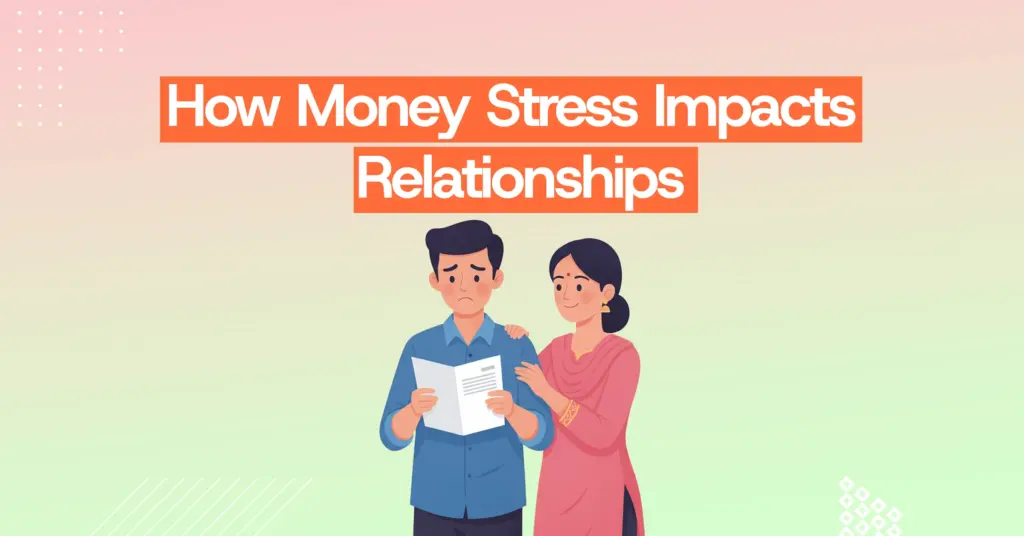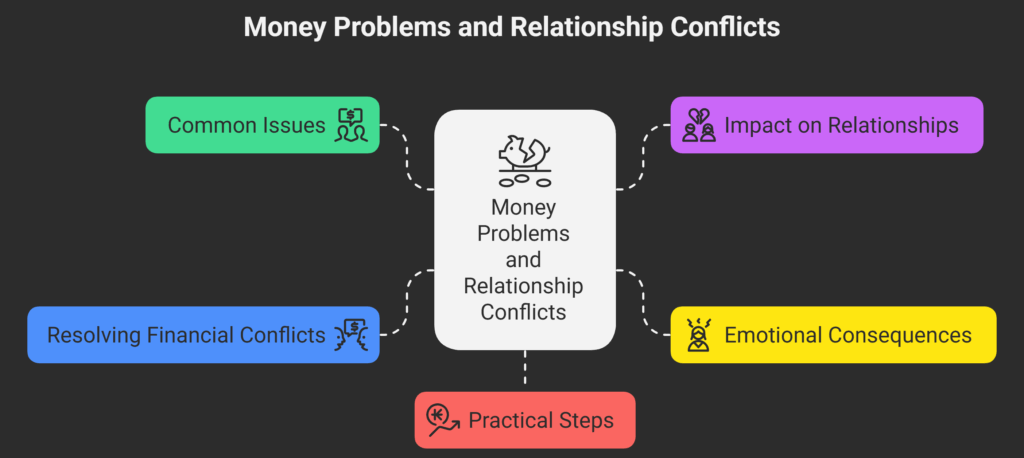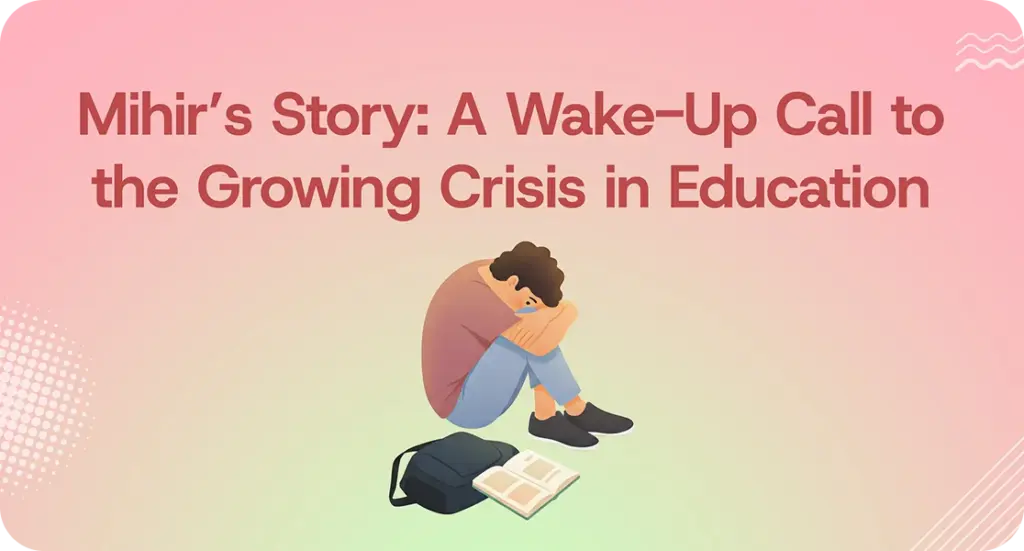
Financial stability is a crucial aspect of life and plays a significant role in overall well-being and mental health. It is not about earning a large amount of money, but about managing finances in a way that meets individual and shared needs. Every person and relationship has unique financial responsibilities, priorities, and expectations, and even those who plan carefully in other areas of life may struggle with financial matters.
When financial instability arises, it often leads to stress, anxiety, and emotional tension. In relationships, this stress can affect communication, trust, and emotional connection. Without mutual understanding and shared financial planning, money-related stress can gradually turn into relationship conflicts.
Understanding how financial stress affects relationships, and learning how couples can manage it together, can help protect both emotional well-being and relationship stability.
Need to Talk to Someone?
Book a private online session with a licensed therapist
Want to know how couples can discuss financial stress, manage it together, and plan their finances effectively? Read more…. Financial Stress Affect Your Relationship?
How Financial Stress Affects Relationships
Financial stress can significantly impact even healthy relationships. Money-related worries increase emotional tension, alter relationship dynamics, and may lead to long-term emotional strain if not addressed openly.
Emotional impact
Financial stress often creates emotional distress within relationships. Partners may experience increased anxiety, guilt, or shame, particularly when one partner feels responsible for financial difficulties. This emotional burden can lead to irritability, frequent arguments, and a sense of emotional exhaustion.
Over time, unaddressed financial stress can strain emotional connection and reduce feelings of safety and understanding within the relationship.
Communication breakdown
Financial stress often leads to communication difficulties. Couples may begin avoiding conversations about money due to fear of conflict, judgment, or blame. When discussions do happen, they may become defensive or emotionally charged.
Avoidance, poor communication, and lack of clarity around finances can create misunderstandings and make it harder for partners to work together toward shared goals.
Trust issues
Money-related stress can erode trust, especially when there is financial secrecy or dishonesty. Hiding expenses, debt, or financial decisions can make partners feel insecure or betrayed.
Differences in goals, financial priorities, spending habits, or values may also contribute to trust issues if they are not openly discussed and respected.
Long-term consequences
If financial stress remains unresolved, it can have lasting effects on a relationship, including ongoing conflict, resentment, reduced emotional and physical intimacy, and emotional distance. In some cases, chronic financial stress may contribute to relationship breakdown or separation.
How to Talk to Your Partner About Money
Talking about money can be uncomfortable, but open discussions are essential for a healthy relationship. Avoiding financial conversations often leads to misunderstandings and unresolved tension.

Key topics to discuss
When discussing finances, couples should openly talk about:
- Financial goals, both short-term and long-term
- Spending habits and priorities
- Debts, loans, and financial responsibilities
- Financial values and expectations
- Plans for managing financial stress together
The conversation
Here are a few points to note before, during, and after having money-related conversations with your partner.
- During the conversation: Choose a calm and relaxed time to talk. Prepare by reflecting on your financial goals, priorities, and concerns. Being mentally prepared can make the discussion more productive and less emotionally charged.
- Before the conversation: Be open and honest about your financial situation and feelings. Listen actively to your partner’s perspective and avoid blaming or criticizing. Using “I” statements can help express concerns without escalating conflict.
- After the conversation: Work together to create a shared plan, such as a budget or financial strategy. Schedule regular check-ins to review progress, discuss changes, and stay aligned. Supporting each other strengthens trust and accountability.
Open communication
Open and honest communication about money builds trust and emotional safety. Regular financial conversations can prevent misunderstandings, promote teamwork, and help couples feel more secure when facing financial challenges together.
Feeling Overwhelmed?
You’re Not Alone. Get Support from an
Oppam Therapist Wherever You Are
Oppam Therapist Wherever You Are
How to Avoid Future Money-Related Conflicts
Preventing financial conflicts requires consistent effort, teamwork, and emotional awareness.
Teamwork and support
Approaching finances as a shared responsibility helps reduce blame and defensiveness. Supporting each other emotionally and working as a team can strengthen both financial stability and relationship health.
Financial planning
Creating a shared financial plan helps couples manage income, expenses, and future goals more effectively. Financial planning can reduce uncertainty, prepare couples for emergencies, and minimize stress related to unexpected expenses.
Managing stress
Financial stress can take a toll on emotional well-being. Focusing on self-care, emotional regulation, and managing what can be controlled can help reduce anxiety and improve communication during difficult times.
Seeking professional support
If financial stress continues to affect communication or emotional connection, seeking professional support may help. Couples therapy or financial stress counselling can provide a safe space to address money-related conflicts, rebuild trust, and develop healthier coping strategies.
Financial stress does not have to damage a relationship. With the right support and shared effort, couples can work toward emotional and financial stability together. Online counselling with Oppam’s qualified therapists can support you and your partner in managing financial stress and relationship conflicts.
Struggling?
Talk to an Oppam Therapist
Get the Support You Deserve Online & Confidential

